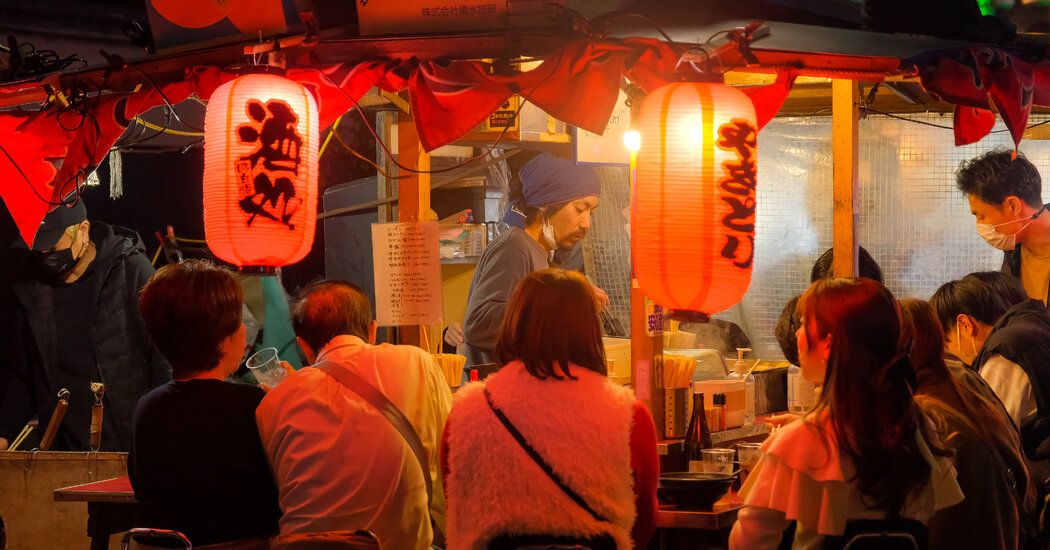There’s a soothing hum to laid-back Fukuoka, the largest city on the Japanese island of Kyushu. It’s hard to miss on a weekend afternoon as you stroll down Meiji-dori Avenue, the city’s wide downtown spine, passing places like the Kabuki theater Hakata-za and the Fukuoka Asian Art Museum. Eventually, you’ll reach the slow-flowing Naka River, whose banks are lined with the traditional open-air food stalls known as yatai, a signature attraction in this culinary and arts haven.
With a sprawling commercial port that was Japan’s largest between the 12th and 16th centuries and which, to this day, links the country with China, Korea and other parts of the Pacific, Fukuoka has long been considered Japan’s “Gateway to Asia.” A popular destination for vacationing Japanese, the city is also drawing tourists from abroad, especially noticeable since the country reintroduced visa-free entry last October. They come for the city’s lauded cuisine, its casual atmosphere, vibrant arts and nightlife scenes and temperate climate. And then there are the historic sites like the beautifully preserved Tochoji Temple, and the natural beauty found in places like the lush Ohori Park and the splendid experimental rooftop garden atop the ACROS building.
Here are some places that visitors might want to include on their itineraries.
A culinary haven
There is no end to restaurants offering typical Japanese cuisine like sushi and ramen and the Japanese multicourse fine dining known as kaiseki.
But what distinguishes Fukuoka’s culinary scene is its emphasis on local specialties like motsunabe (beef tripe hot pot), mizutaki (chicken hot pot) and mentaiko (marinated pollock roe), dishes that are often served at yatai, which typically have small open-air kitchens, a counter and limited seating.
One innovative yatai owner is 29-year-old Akihiro Korehisa. After finding it difficult to open his own restaurant during the pandemic, he turned to operating a yatai as an option, counting on less overhead and more excitement.
Yatai dining, Mr. Korehisa said, celebrates the city’s first-rate seafood and produce. His stall, HEROs, which moves around downtown Fukuoka (its current location is always available on its Instagram account), is a lively place, attracting both locals and tourists with dishes like seiro-mushi (beef and vegetables prepared in a bamboo steamer) and chawan-mushi (a steamed egg custard). A full meal here will cost about 2,500 yen, or just over $17.
“Authentic yatai…
Click Here to Read the Full Original Article at NYT > Travel…
